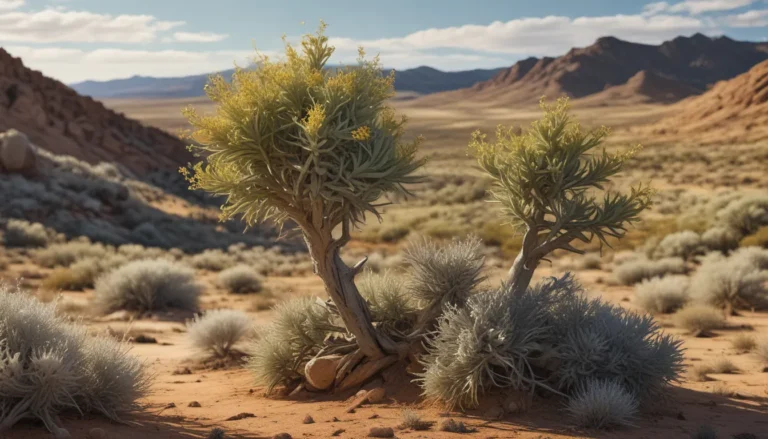The pictures we use in our articles might not show exactly what the words say. We choose these pictures to make you interested in reading more. The pictures work together with the words but don’t take their place. The words still tell you the important facts.
Pecan trees are more than just beautiful plants; they are integral parts of North America's natural landscape. Known for their longevity, delicious nuts, and rich history, pecan trees offer a world of wonder waiting to be explored by kids. In this article, we will delve into 18 intriguing facts about pecan trees, tailored specifically for young learners eager to discover the wonders of nature.
Key Takeaways:
- Pecan trees can live for over 300 years, providing a home for wildlife and a bountiful harvest of nuts, making them a vital part of North America’s natural landscape.
- Pecans are not only a tasty snack but also a rich source of nutrients, a staple in Southern cuisine, and a popular choice for confections and baked goods.
The Longevity of Pecan Trees
Pecan trees are known for their remarkable longevity, with some specimens surviving for well over three centuries. This enduring trait makes them a captivating subject for scientists and nature enthusiasts alike, showcasing the resilience and longevity of these majestic trees.
Unique to North America
Unlike most tree nuts that are cultivated in specific regions, pecans are unique in that they grow naturally across North America. This distinctive feature has contributed to the pecan's status as an iconic symbol of the continent's natural abundance, making them a treasured part of the local environment.
The Etymology of “Pecan”
The word "pecan" has its origins in the Algonquian language, where it referred to a nut that requires a stone for cracking. This linguistic history adds an interesting layer to the cultural and historical significance of pecans, highlighting their connection to indigenous languages and traditions.
Towering Heights of Pecan Trees
Pecan trees are known for their impressive stature, often reaching heights between 70 and 100 feet. Their towering presence in the natural landscape not only captivates observers but also provides a vital habitat for diverse wildlife, showcasing the importance of these majestic trees in supporting ecosystems.
Nutrient-Rich Pecans
Pecans offer a wealth of essential nutrients, including heart-healthy fats, protein, and dietary fiber. This nutritional profile underscores the pecan's value as a wholesome and nourishing food source, making them a delicious and nutritious snack option for kids and adults alike.
A Century of Cultivation
The cultivation of pecans dates back over a century, marking a longstanding tradition that has contributed to the prominence of pecan orchards across North America. This rich history of cultivation showcases the enduring importance of pecans in the agricultural heritage of the continent.
Versatile Culinary Applications
Pecans are a versatile ingredient in culinary applications, adding a delightful crunch and rich flavor to a wide array of dishes. From pies to savory dishes and nutritious snacks, pecans are a beloved ingredient that enhances the taste and texture of various culinary creations, making them a versatile and delicious choice for home cooks and chefs alike.
Prized Pecan Wood
The robust and lustrous wood of the pecan tree is highly sought after for crafting furniture and flooring, prized for its durability and natural beauty. With its unique grain patterns and rich color, pecan wood adds a touch of elegance and sophistication to any home decor, showcasing the versatility and utility of these remarkable trees beyond their culinary offerings.
Abundant Harvests of Pecans
Each year, pecan trees yield a generous bounty of nuts, providing a plentiful supply of this beloved tree nut for various uses and enjoyment. Whether eaten on their own as a snack or incorporated into a wide range of recipes, pecans offer a delicious and versatile ingredient that adds a rich flavor and satisfying crunch to any dish.
Southern Cuisine Staple
Pecans hold a revered place in Southern cuisine, featuring prominently in iconic dishes such as pecan pie and pralines. Their rich, buttery flavor and crunchy texture make them a beloved ingredient in Southern cooking, adding a touch of indulgence and sweetness to traditional recipes that have been passed down through generations.
Essential Ecosystem Role
The presence of pecan trees plays a vital role in sustaining diverse ecosystems, providing food and shelter for numerous species of wildlife. Their extensive root systems help prevent soil erosion, while their foliage offers shade and protection for wildlife, highlighting the importance of pecan trees in supporting biodiversity and healthy ecosystems.
Economic Impact of Pecans
The cultivation and commercialization of pecans contribute substantially to the economy, supporting agricultural livelihoods and local industries. Pecans are not only a valuable food source but also a significant economic driver, generating income and employment opportunities for growers and businesses involved in the pecan industry.
Optimal Growing Conditions
Pecan trees require well-drained soil and ample sunlight to thrive, creating an optimal environment for their growth and nut production. By providing the right growing conditions, including proper soil drainage and adequate sunlight, growers can ensure the health and productivity of pecan trees, maximizing their yield of delicious nuts year after year.
Holiday Season Celebrations
Pecans are a cherished component of holiday traditions, featuring in festive recipes and culinary delights that bring joy to gatherings and celebrations. From pecan pies to cookies and candies, pecans add a festive touch to holiday menus, creating delicious treats that are enjoyed by family and friends during the festive season.
Autumn Beauty of Pecan Trees
During the autumn season, pecan trees adorn the landscape with their vibrant foliage, showcasing a stunning display of golden hues that captivate onlookers. The natural beauty of pecan trees in the fall adds a touch of warmth and color to the surroundings, creating a picturesque scene that highlights the changing seasons and the beauty of nature.
Long Shelf Life of Pecans
When stored in suitable conditions, pecans maintain their freshness and flavor for an extended period, offering a convenient and delectable snack option throughout the year. Whether enjoyed on their own or incorporated into recipes, pecans are a versatile and delicious nut that can be enjoyed year-round, adding a touch of indulgence to daily snacking and cooking.
Popular Choice for Confections and Baked Goods
The rich and buttery flavor of pecans makes them a favored ingredient in a wide range of confections and baked goods. From cookies and brownies to cakes and pastries, pecans add a delightful crunch and delectable taste to various treats, making them a popular choice for home bakers and professional chefs looking to enhance their creations with a touch of nutty goodness.
Resilient Roots of Pecan Trees
The robust root system of pecan trees enables them to establish a secure foundation in the earth, contributing to their longevity and resilience in diverse environmental conditions. With deep roots that anchor them firmly in the ground, pecan trees can withstand various weather conditions and soil types, allowing them to thrive and flourish for generations to come.
In conclusion, pecan trees are remarkable plants that offer a world of wonder waiting to be explored by kids. From their longevity and culinary versatility to their economic impact and environmental benefits, pecan trees play a vital role in North America's natural landscape. By understanding these 18 fascinating facts about pecan trees, young learners can develop a greater appreciation for nature and the significance of these iconic trees in the world around them. Encouraging children to explore and learn about pecan trees can foster a deeper connection to the natural world and inspire a sense of environmental stewardship that can last a lifetime.
FAQs:
What is the lifespan of a pecan tree?
Pecan trees have a long lifespan, often living for over 100 years. With proper care and maintenance, they can thrive for generations, providing abundant harvests of pecans year after year.
How do pecan trees benefit the environment?
Pecan trees offer numerous environmental benefits, including oxygen production, carbon dioxide absorption, soil stabilization, and wildlife habitat. Their extensive root systems also help prevent soil erosion, making them valuable contributors to healthy ecosystems.
In conclusion, the world of pecan trees is a fascinating and valuable one, offering a treasure trove of knowledge and wonder for kids to explore. By delving into the rich history, cultural significance, and natural beauty of pecan trees, young learners can gain a deeper appreciation for the wonders of nature and the importance of preserving and protecting our natural environment for generations to come.






